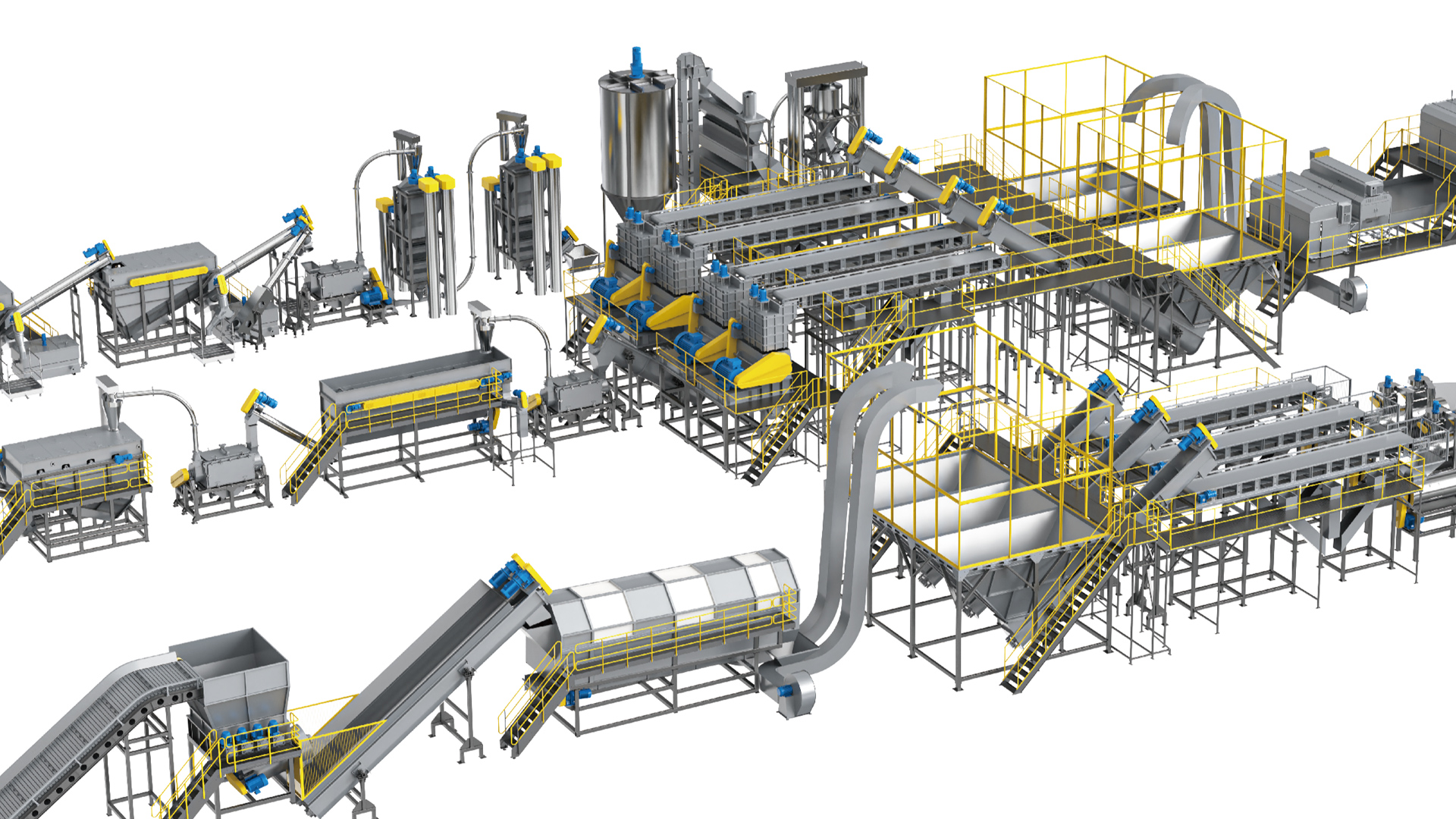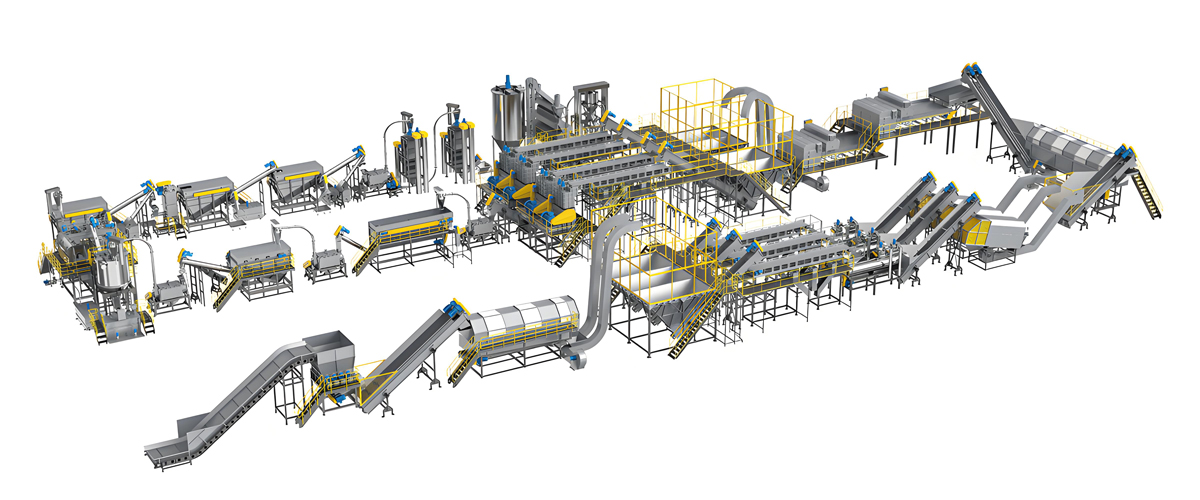There are significant differences in the application fields between general plastic recycling machines and engineering plastic recycling machines, mainly due to the different characteristics of the types of plastics they process and market demand.
Application fields of general plastic recycling machines
The general plastic recycling machine mainly processes plastic materials commonly used in daily life, such as polyethylene (PE), polypropylene (PP), polystyrene (PS), polyvinyl chloride (PVC), etc. These plastics have good processability and cost advantages, making them suitable for mass production and widespread application fields. Therefore, after processing these plastic wastes, the recycled materials of the universal plastic recycling machine are often widely used in the following fields:
Packaging industry
Polyethylene (PE) in general plastics is the main material for making various packaging films, such as food packaging films, agricultural films, etc. The PE particles recovered by a universal plastic recycling machine can be remade into thin films for use in the packaging industry. For example, recycled PE plastic can be reprocessed into supermarket shopping bags, cling film, and other products.
Polypropylene (PP) is also widely used in the packaging field, such as plastic woven bags made of PP plastic, used for packaging fertilizers, grains, etc. The recycled PP particles can be reused to manufacture woven bags, reducing the use of new plastics and lowering costs.
In the field of daily necessities
Polystyrene (PS) is commonly used in the manufacture of disposable tableware, stationery, etc. The recycled PS plastic can be processed into similar products again. For example, processing recycled PS plastic into plastic stationery cases, such as pen holders, eraser cases, etc.
Polyvinyl chloride (PVC) is widely used in pipes, wire and cable sheaths, and other applications. Recycled PVC can be used to make pipes that do not require particularly high performance, such as plastic water pipes for irrigation, or used to manufacture products such as plastic flooring leather.
Application field of engineering plastic recycling machine
The engineering plastic recycling machine mainly processes polymer materials with excellent performance and engineering application value, such as ABS, PC, PA, etc. These plastic materials have relatively complex structures, good thermal stability, chemical resistance, and mechanical properties, and are suitable for various complex engineering applications. Therefore, after processing these plastic wastes, the recycled materials of engineering plastic recycling machines are often widely used in the following fields:
Automotive industry
Polyamide (PA, commonly known as nylon) is a commonly used engineering plastic in the automotive industry. It is used to manufacture automotive engine peripheral components (such as intake manifolds), automotive seat components, etc. The PA material recovered by the engineering plastic recycling machine can be reused in the manufacturing of automotive parts after strict quality testing and reprocessing, meeting the requirements of the automotive industry for material strength, wear resistance, and temperature resistance.
Polycarbonate (PC) has good transparency and mechanical properties, and is commonly used in automotive headlight covers, instrument panels, and other components. The recycled PC material undergoes fine processing and can be reused in the manufacturing of automotive components that require high transparency and strength.
Electronic and electrical field
Polyoxymethylene (POM) has excellent self-lubricating properties and mechanical properties, and is commonly used in the manufacturing of precision components such as small gears and bearings in electronic and electrical equipment. The POM materials recycled by the engineering plastic recycling machine can be reused in the manufacturing of electronic and electrical components that require high precision and performance through complex recycling processes, ensuring the normal operation of the equipment.
Engineering plastics are also used in the manufacturing of casings for electronic products such as computers and mobile phones. For example, PC/ABS alloy plastic (an alloy of polycarbonate and acrylonitrile butadiene styrene copolymer) has good mechanical properties and appearance quality. After recycling, this alloy plastic can be reprocessed into electronic product casings, ensuring product performance while achieving resource recycling.
Mechanical manufacturing field
In mechanical manufacturing, engineering plastics are used to manufacture various components, such as seals for industrial valves and rollers for conveyor belts. Recycled engineering plastics can be processed by engineering plastic recycling machines and then reused to manufacture these mechanical components, reducing production costs while also adhering to the concept of sustainable development.
The difference between general plastic recycling machines and engineering plastic recycling machines in their application fields mainly stems from the different characteristics of the types of plastics they process. The general plastic recycling machine mainly processes plastic waste that is low-cost, easy to process, and widely used in daily life; The engineering plastic recycling machine mainly processes polymer material waste with excellent performance and engineering application value. These two types of recycling machines play important roles in their respective fields, providing effective solutions for the recycling and reuse of plastic waste.







